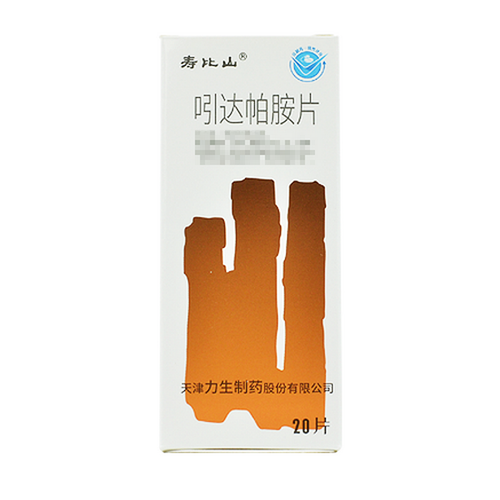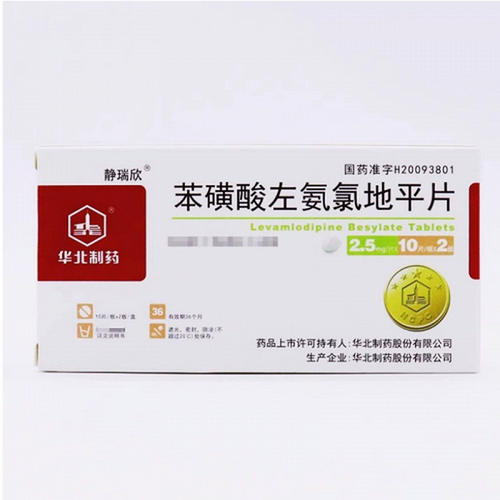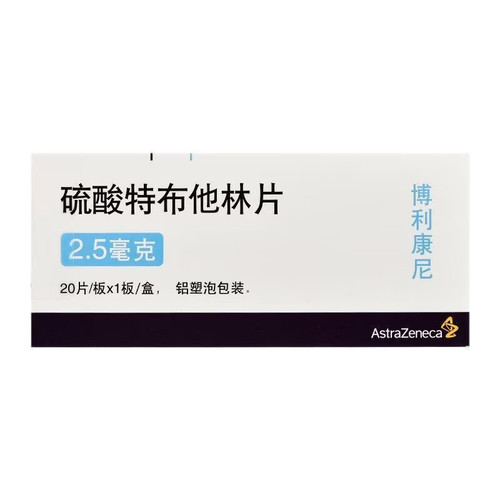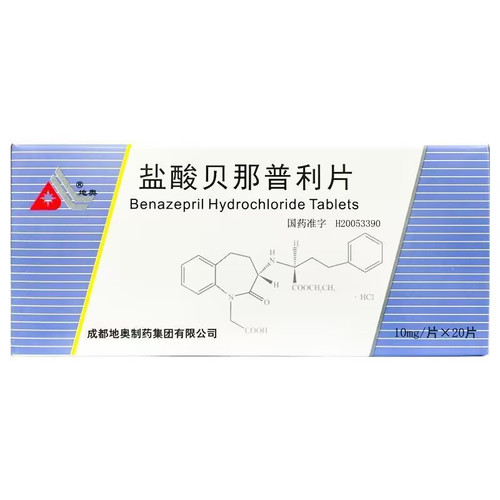Product Overview
[Drug Name]
Generic Name: Midodrine Hydrochloride Tablets
Trade Name: Chuankang/Miwei
English Name: Midodrine Hydrochloride Tablets
Chinese Pinyin: Midodrine Hydrochloride Tablets
[Ingredients]
The main ingredient of this product is midodrine hydrochloride.
[Appearance]
This product is white or off-white tablets.
[Indications]
It is used for hypotension caused by postural circulatory dysfunction during lower limb venous congestion, postoperative and postpartum blood loss, climate change, and morning fatigue. It is also used for stress urinary incontinence in women.
[Dosage and Administration]
Treatment should be adjusted based on the patient's autonomic nervous system tone and responsiveness. The following dosage is recommended:
1. Adults and adolescents (over 12 years old): Initial dose: 2.5 mg (1 tablet) 2-3 times daily. The dosage may be increased every 3-4 days depending on the patient's tolerance. Midodrine hydrochloride tablets should be taken during the day, when patients need to stand up for daily activities. Dosage intervals of 3-4 hours are recommended. The first dose should be taken before or after rising in the morning, the second dose should be taken at noon, and the third dose should be taken in the afternoon or late at night. To prevent supine hypertension, midodrine hydrochloride tablets should not be taken within 4 hours of dinner or bedtime.
2. Urinary Incontinence: Adults: 2.5 mg (1 tablet) to 5 mg (2 tablets) 2-3 times daily. Adjust dosage based on patient needs under the guidance of an experienced physician.
Dosage: Take orally with liquid.
[Adverse Reactions]
Rarely, arrhythmias, chills, and rash may occur. Higher doses may cause a goose-like rash on the head and neck, or a sensation of incomplete urination, in some patients. Heart rate may be less than 60 beats per minute.
[Contraindications]
This product is contraindicated in patients with hypertension, pheochromocytoma, acute nephritis, severe renal dysfunction, glaucoma, prostatic hyperplasia with urinary retention, mechanical urinary obstruction, or hyperthyroidism. Patients with severe organic heart disease, cardiovascular disease, arrhythmias, or renal insufficiency should exercise caution when using this product.
[Precautions]
1. During treatment, regular monitoring of supine, sitting, and standing blood pressure is essential. The possibility of supine or sitting hypertension must be evaluated before initiating treatment. If symptoms suggestive of hypertension occur (e.g., cardiac sensation, headache, visual impairment), treatment must be discontinued and a physician consulted. Supine hypertension may be avoided by reducing the dose. Treatment with midodrine hydrochloride tablets should be continued only in patients who have responded to initial treatment. Midodrine hydrochloride therapy should be discontinued in patients who experience severe intermittent blood pressure fluctuations. Concomitant use of midodrine hydrochloride tablets with adrenergic drugs or medications containing other vasoconstrictors, such as reserpine, guanethidine, tricyclic antidepressants, antihistamines, thyroid hormones, and monoamine oxidase (MAO) inhibitors, should be avoided as they may significantly increase blood pressure. 2. Reflex bradycardia may occur during treatment: Therefore, caution is recommended in patients taking concomitant medications that directly or indirectly slow the heart rate (e.g., digitalis, beta-blockers, psychotropics, etc.). Patients must be informed of the symptoms of bradycardia (e.g., slowed heart rate, increased dizziness, loss of consciousness), and that treatment must be discontinued and a physician consulted in such cases. Patients with cor pulmonale must be monitored particularly carefully. Caution is also recommended in patients with glaucoma or at risk for increased intraocular pressure, as well as in patients taking mineralocorticoids or fludrocortisone concomitantly (due to the potential for increased intraocular pressure). 3. Monitoring of renal function is recommended for patients undergoing long-term treatment. There are no data regarding the use of midodrine hydrochloride tablets in children, the elderly, and patients with impaired hepatic or renal function.
[Special Use]
Precautions for Pediatric Use: Not yet available.
Precautions for Pregnancy and Lactation: Use with caution in pregnant women.
Precautions for Elderly Use: Not yet available.
[Drug Interactions]
Concomitant use with sympathomimetics or other vasoconstrictors, such as reserpine, guanethidine, tricyclic antidepressants, antihistamines, thyroid hormones, and MAO inhibitors, should be avoided as significant increases in blood pressure may occur. The effects of midodrine hydrochloride may be antagonized by alpha-blockers (such as prazosin and phentolamine). Concomitant use with beta-blockers may worsen bradycardia. Raphanus alkaloids (reserpine) may slightly increase the pressor effect of midodrine hydrochloride. Cardiac glycosides (digitalis) can worsen bradycardia or cause cardiac conduction disturbances. Weekly use of atropine or cortisone-like medications can increase or excessively increase blood pressure.
[Pharmacological Actions]
This drug is inactive in its original form. After oral administration, it undergoes aminoacetyl hydrolysis in the bloodstream and is converted to the active metabolite, desglymidodrine. Desglymidodrine is a selective peripheral sympathetic A1 receptor agonist, acting directly postsynaptically to release adrenaline stimulants. This drug has vascular tone regulation properties. It can increase peripheral arterial and venous resistance in patients with orthostatic blood pressure dysregulation. It can also prevent excessive blood pooling in the lower extremities, promote blood return, and maintain stable blood volume, thereby increasing orthostatic blood pressure and improving symptoms caused by insufficient circulating volume (such as morning sluggishness, fatigue, dizziness, and blurred vision). This drug does not cause increased central nervous system excitability and has no direct effect on the heart, but heart rate may decrease after administration due to feedback effects.
[Storage] Must be stored below 25°C, away from light, in a dry place.
[Specification] 2.5mg x 20 tablets
[Packaging] Box
[Expiry Date] 24 months
[Approval Number] National Medicine Standard H20060551
[Manufacturer] Company Name: Sinopharm Sichuan Kang Pharmaceutical Co., Ltd.








